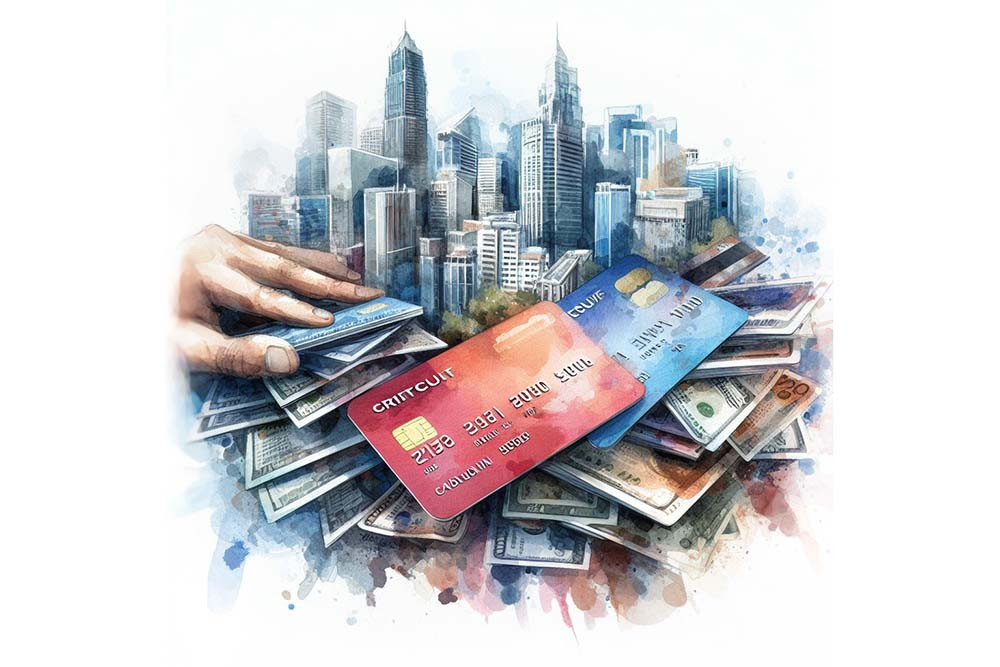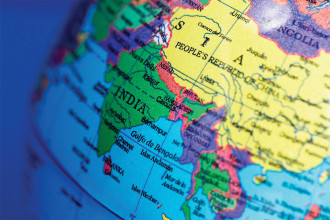
If you’re wondering why even high-income households are racking up record credit card debt to make ends meet, look to the central bankers and the cheerleaders of monetary expansion.
David Brooks is sorry. The New York Times columnist admitted he “screwed up” when he posted on social media a photo of his meal — a burger, fries, and a whiskey — at a New Jersey airport, along with these two sentences.
“This meal just cost me $78 at Newark Airport,” tweeted Brooks. “This is why Americans think the economy is terrible.”
The post quickly went viral, reaching nearly 40 million views. This was bad news for Brooks since the restaurant and observant readers noted he must have been knocking back the bourbon to rack up a $78 tab. (The burger and fries go for $17, so either Brooks is a very generous tipper or he had a second double bourbon not pictured.)
In an interview with PBS’s William Brangham, Brooks admitted there’s a big difference between “an upper-middle-class journalist having a bourbon at an airport” and “a family living paycheck to paycheck.” He’s right, but data suggest a surprising percentage of well-to-do people are indeed living paycheck to paycheque.
A recent report from Moneywise cited a survey from the personal finance software company Quicken that found “32% of Americans earning at least $150,000 a year are currently living paycheck to paycheck.”
This seems extraordinary, but recent data published by the Federal Reserve Bank of New York show a surge in borrowing, with credit card debt in the second quarter of 2023 eclipsing $1 trillion for the first time. Despite high-interest rates, people of all income levels are turning to credit cards to make ends meet. The New York Times recently noted that more than two-thirds of US families now have credit cards, and balances were up more than 16% compared to the previous year.
Somewhat surprisingly, it is higher-income households that report being more reliant on credit cards than ever.
“The Quicken survey found that 46% of higher-income groups are more dependent on their credit cards than they’ve ever been,”
Moneywise reported, “compared to just 40% of middle- and 39% of lower-income groups.”
Meanwhile, a third of earners making more than $150,000 a year say they won’t be able to pay off their balance this year, a costly move considering that LendingTree reports that the average interest rate on a credit card currently stands at 24.45%.
Mismanagement of credit cards is one reason millions of people are struggling with debt. And with student loan repayments set to resume on Oct. 1, the situation for millions of households is only going to get worse.
The reason so many are struggling is not a mystery, of course.
Inflation is often called “the silent killer” because it erodes wealth slowly. The Federal Reserve’s 2% inflation target is small enough that people don’t normally feel it in their grocery bills, but the runaway inflation people experienced in the last few years is another story, with inflation reaching 9% in the summer of 2022.
The difference between 2% inflation and 9% might not sound huge, but a simple financial planning calculator shows why former President Ronald Reagan once compared inflation to a violent mugging.
Assuming an annual inflation rate of 2%, a 35-year-old making $50,000 a year would need to make $90,568 just to maintain the same standard of living at retirement. At 9%, he’d have to make $663,384!
This shows the pernicious power of inflation. It’s a force that has destroyed empires and ushered in tyrants. So, it invites a question: If inflation is so dangerous, why is it a feature of our economy?
Many will argue that the answer is found in the Fed’s “dual mandate”: Keep prices “stable” (what a lovely job they’ve done) and unemployment low. Three of the most celebrated economists in history, however, offer a better answer.
John Maynard Keynes, Milton Friedman, and Murray Rothbard disagreed on a great many things, but each recognized that central banks offered the government a stealthy method of expropriation.
“By a continuing process of inflation, government can confiscate, secretly and unobserved, an important part of the wealth of their citizens,” Keynes, arguably the most influential economist of the 20th century, once observed.
Friedman and Rothbard made similar observations.
So if you’re wondering why even those in higher-income households are racking up record credit card debt to make ends meet — even those not knocking back $30 bourbons — look to the central bankers and the cheerleaders of monetary expansion.
Source: fee.org






-1758107444.jpg)